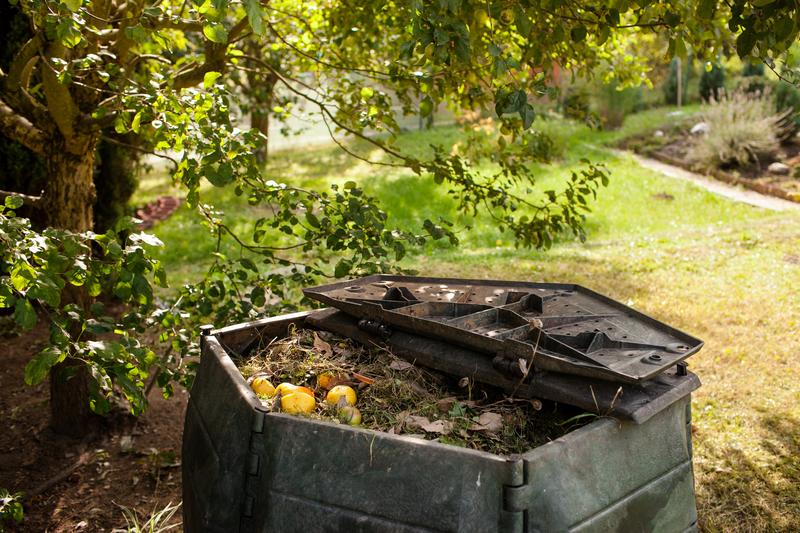Slash Your Bulky Waste Expenses With Simple Solutions
Dealing with bulky waste can be stressful, expensive, and time-consuming. Bulky waste disposal--such as old furniture, mattresses, appliances, and garden debris--often involves hidden fees, logistical headaches, and environmental concerns. But what if you could drastically reduce these bulky waste expenses by making a few smart changes? This guide will detail cost-effective strategies to tackle unwanted large items, save money instantly, and contribute to a healthier planet.
Understanding Bulky Waste and Its Expenses
Bulky waste refers to items that are too large to be collected via regular waste collection services. Common examples include:
- Old sofas, beds, and armchairs
- Broken washing machines, fridges, & dishwashers
- Garden sheds and equipment
- Rugs, carpets, and other oversized materials
Why is disposing of bulky waste so costly? In many cities and towns, council collection services often charge per item, and private junk removal companies levy high fees to cover labor, transport, and landfill expenses. Over time, these costs can add up, hitting both households and businesses hard.

Why Reducing Bulky Waste Expenses Matters
Aside from the personal financial impact, mounting bulky waste also poses environmental and societal issues:
- Landfill Overload: Large items take up valuable landfill space and release greenhouse gases as they break down.
- Council Budgets: Excessive disposal demands burden local governments with extra costs--often funded by taxpayer money.
- Illegal Dumping: High disposal fees sometimes drive people to illegally dump, polluting local environments.
Reducing these expenses is not just about saving money--it's about protecting your community and the planet.
Simple Solutions to Slash Your Bulky Waste Costs
1. Embrace The Circular Economy: Reuse and Repurpose
Before you think of paying for removal, ask: Can this item have a second life? Extending the use of household goods diverts them from landfill and saves disposal fees.
- Donate Usable Items: Many charities and non-profits collect furniture, mattresses, and appliances in good condition. You might even get a free collection!
- Sell or Give Away: Platforms such as Facebook Marketplace, Freecycle, and Nextdoor are goldmines for finding those in need of your unwanted goods. An old bed for you might be a treasure for someone else.
- Upcycle: DIY projects transform old furniture into new treasures. Consider repainting, reupholstering, or repurposing materials for a creative project.
2. Dismantle Bulky Waste to Lower Fees
Many removal companies charge by item or by volume. If you break down large items into manageable pieces, you may reduce the chargeable size, making collection cheaper--or even letting you use the regular refuse service.
- Disassemble Furniture: Remove legs, arms, and backrests. Flat-packed waste is easier (and often cheaper) to dispose of.
- Cut Up Carpets & Rugs: Roll and tie them in small bundles, making them easier for collection crews to handle.
Always check your local regulations, and use the proper tools and safety equipment.
3. Organize Community Clear-Outs
Pooling resources with neighbors spreads the cost. Organized community bulky waste collection events can reduce per-household expenses and help everyone clear space at once.
- Contact Your Local Council: Some councils provide discounted rates for scheduled neighborhood pickups. Others may loan large dumpsters or offer bulk collection days.
- Collaborate With Neighbors: Share skip hire or removal services among several households, cutting costs for everyone involved.
4. Use Free or Discounted Collection Services
Many regions offer free or low-cost disposal services for certain bulky items. Always check for available resources before paying private providers.
- Council Pickups: Some councils allow a limited number of free collections per year. Find out your area's allowances.
- Manufacturer Take-back: Retailers or manufacturers of mattresses, white goods, or electronics may offer free disposal when you buy a replacement.
5. Rent a Van or Trailer for DIY Disposal
If you have multiple items, renting a vehicle and transporting waste to a local civic amenity site can be more economical than paying per item for pickup. Bring along a friend and share both the work and the cost!
Cutting Bulky Waste Removal Expenses for Businesses
Commercial bulky waste--from office furniture to retail displays--can quickly eat up operational budgets. Here are tailored strategies for companies:
- Asset Recovery: Sell or auction off usable office furniture, old tech, or shelving before resorting to landfill options.
- Regular Audits: Identify opportunities to avoid creating bulky waste through smarter purchasing (modular furniture, reusable equipment, etc.).
- Partner With Recycling Organizations: Many non-profits will collect and redistribute business assets, offsetting your disposal costs and improving your company's sustainability profile.
Practical Tips for Small Businesses
- Negotiate Better Rates: If you generate regular bulky waste, seek volume discounts or long-term contracts with removal partners.
- Join Business Networks: Collaborating with neighboring businesses for joint collections can unlock significant savings.
Smart Habits to Prevent Bulky Waste Build-Up
Prevention is the easiest way to slash bulky waste removal costs! Adopt these habits to keep your home or business clutter-free:
- Buy Quality Over Quantity: Invest in durable, timeless furniture--less likely to break or end up unwanted.
- Plan for End-of-Life: Consider how easy an item will be to dispose of before purchasing. Modular and recyclable pieces are usually simpler and less expensive to rehome or recycle.
- Streamline Regularly: Schedule bi-annual decluttering sessions. This discipline prevents sudden build-ups and surprise expenses.
- Maintain and Repair: Regularly clean and fix items to extend their lifespan.
Maximizing Savings: Comparing Bulky Waste Disposal Options
Not sure whether to use council, private, or DIY means? See this breakdown:
| Disposal Method | Pros | Cons | When to Use |
|---|---|---|---|
| Council Collection |
|
|
For a few items and flexible timings |
| Private Junk Removal |
|
|
When you have lots of waste or tight deadlines |
| DIY Drop-off |
|
|
When you have a van and want to keep costs minimal |
| Sell/Donate/Upcycle |
|
|
When items are in usable condition |
Common Mistakes That Increase Bulky Waste Expenses
- Procrastinating Disposal: Waiting until items become unsalvageable eliminates donation/sale options and may mean higher fees for hazardous or damaged goods.
- Failing to Compare Quotes: Never settle for the first price. Shop around for responsible collectors with transparent pricing and verified recycling credentials.
- Ignoring Legal Requirements: Illegal dumping can lead to fines or prosecution. Always use licensed providers.
- Overlooking Recycling: Certain materials (metal, wood, electronics) have dedicated recycling streams that are cheaper--or even profitable--compared to landfill disposal.

Environmental and Social Benefits of Smarter Bulky Waste Management
Reducing bulky waste isn't just financially smart--it's also a win for your neighborhood and the planet. Here's how:
- Less Landfill: Keeping items out of landfill cuts emissions, conserves resources, and reduces landfill management costs.
- Resource Recovery: Proper recycling means materials like metal, timber, and textiles get a second life, reducing the need for raw extraction.
- Community Support: Donating usable goods supports those in need and fosters a culture of sharing.
Quick Reference: How To Slash Bulky Waste Expenses
- Reuse, donate, or upcycle instead of discarding items
- Disassemble goods to decrease chargeable size or volume
- Join forces with neighbors for combined collections
- Take advantage of free or discounted collection offers
- Handle DIY drop-offs if possible, especially for multiple or lighter items
- Plan ahead to prevent sudden large waste build-up
The Bottom Line: Smart Choices, Real Savings
Bulky waste disposal doesn't have to break the bank. With a proactive approach, you can minimize costs, stay compliant, and contribute to a greener world. The next time you face a mountain of unwanted items, remember: reuse, dismantle, share, and plan ahead to slash your bulky waste expenses.
For ongoing savings and waste reduction, make these actions a regular part of your lifestyle or business operations. The payoff? A cleaner home, healthier budget, and a better future for all.
